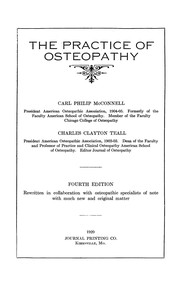Pancreatic Cancer Awareness Low Among Under-50 Adults, Despite Rising Cases
A recent survey by Ohio State University reveals a concerning lack of awareness about pancreatic cancer in adults under 50. With rates rising in this demographic, experts urge better understanding of risk factors, including obesity and lifestyle habits. Preventative measures such as weight management and awareness of family history are emphasised as crucial to reducing risk. However, researchers say more focus on early detection is needed to improve outcomes.

The Ohio State University Comprehensive Cancer Center—Arthur G. James Cancer Hospital and Richard J. Solove Research Institute (OSUCCC—James) recently conducted a survey revealing a worrying knowledge gap about pancreatic cancer in adults under 50. Although pancreatic cancer is increasingly diagnosed in younger people, the survey found that over half of respondents did not recognise its early symptoms, and around a third mistakenly believed that only older individuals are at risk. Many were also unaware of how lifestyle changes could help reduce the likelihood of this disease.
Rising Diagnoses in People Under 50 Spark Concerns
Dr Zobeida Cruz-Monserrate, co-leader of the Molecular Carcinogenesis and Chemoprevention Programme at OSUCCC—James, highlighted that pancreatic cancer rates in younger age groups have been growing by roughly 1% each year. Dr Cruz-Monserrate pointed to this shift as both unusual and concerning. As pancreatic cancer often goes undetected until advanced stages, reducing the effectiveness of available treatments.
Factors Influencing Pancreatic Cancer Risk
While genetics account for about 10 percent of pancreatic cancer cases, lifestyle factors play a significant role in determining an individual's risk. Data from the American Cancer Society indicate that obesity, for instance, increases one's lifetime risk of pancreatic cancer by as much as 20 percent. Dr Cruz-Monserrate emphasised that a healthy weight, regular physical activity, and limited alcohol intake can positively influence not only pancreatic cancer risk but overall health as well.
Exploring Preventive Measures and Early Detection
At OSUCCC—James, research is underway to develop early detection methods for pancreatic cancer, such as minimally invasive tests for pancreatic cysts. Additionally, researchers are examining the potential connections between chronic pancreatitis, diabetes, and pancreatic cancer. Until more targeted screening is available, Dr Cruz-Monserrate advises focusing on lifestyle adjustments that can help minimise risks.
Ongoing Efforts in Detection and Prevention
With pancreatic cancer remaining one of the most challenging cancers to treat, increased public awareness and preventative lifestyle choices are critical.












)



























































